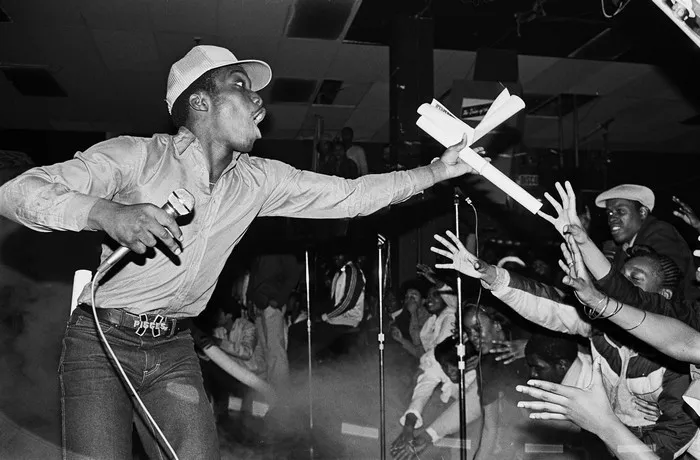Hip hop is a vibrant and influential cultural movement that emerged in the African American and Latinx communities in the Bronx, New York City, during the 1970s. Combining music, dance, visual art, fashion, and spoken word, hip hop quickly grew into a global phenomenon, shaping not only the music industry but also societal norms, fashion trends, and even political discourse. In this article, we will delve into the origin of hip hop, explore its cultural significance, examine its relationship with rap music, highlight notable artists and songs, and analyze how it has become the most popular music genre.
The Meaning of Hip Hop
At its core, hip hop is a multifaceted artistic expression that reflects the experiences, struggles, and aspirations of marginalized communities. It serves as a platform for storytelling, self-expression, and social commentary, addressing issues such as poverty, racism, violence, and inequality. Hip hop encompasses four main elements: MCing (rapping), DJing (turntablism), breakdancing (B-boying/B-girling), and graffiti art. These interconnected elements create a holistic cultural experience that celebrates creativity, individuality, and community.
Characteristics of Hip Hop Music
Hip hop music is characterized by its unique beats, rhythm, and lyrical style. The beats often feature heavy basslines, samples from various musical genres, and rhythmic patterns that encourage movement and dance. The lyrical content of hip hop songs ranges from personal narratives to social commentary, often using wordplay, metaphors, and storytelling techniques. The delivery of the lyrics can vary, from rapid-fire rhymes to melodic flows, showcasing the diverse range of artistic expression within hip hop.
Relationship between Hip Hop and Rap Music
Hip hop and rap music are often used interchangeably, but they are distinct yet interconnected entities. Hip hop encompasses the broader cultural movement, whereas rap is a specific style of vocal delivery within hip hop music. Rap involves rhythmically spoken or chanted lyrics over a beat, often addressing personal experiences, societal issues, or boasting about one’s skills and achievements. While rap is a crucial component of hip hop music, it is just one element among many that contribute to the overall culture.
Notable Artists and Songs in the History of Hip Hop
Throughout its history, hip hop has produced numerous influential artists and iconic songs that have shaped the genre. In the early years, artists such as DJ Kool Herc, Grandmaster Flash and the Furious Five, and Afrika Bambaataa played pivotal roles in developing the foundational elements of hip hop. As the genre evolved, artists like Run-DMC, Public Enemy, and N.W.A. emerged, introducing politically charged lyrics and pushing boundaries with their music and fashion choices.
The 1990s witnessed the rise of hip hop’s mainstream popularity, with artists like Tupac Shakur, The Notorious B.I.G., and Nas dominating the scene. This era also saw the emergence of influential female artists like Queen Latifah, Missy Elliott, and Lauryn Hill, who broke down barriers and challenged gender norms within the genre. In recent years, artists like Kendrick Lamar, J. Cole, and Cardi B have continued to push hip hop’s boundaries and address important social issues through their music.
Some notable songs that have had a lasting impact on hip hop include “Rapper’s Delight” by The Sugarhill Gang, “The Message” by Grandmaster Flash and the Furious Five, “Fight the Power” by Public Enemy, “Juicy” by The Notorious B.I.G., and “Lose Yourself” by Eminem. These songs, among many others, have not only shaped the music landscape but also become cultural touchstones that resonate with audiences worldwide.
The Popularity of Hip Hop
Hip hop’s journey from the streets of the Bronx to becoming the most popular music genre globally is a testament to its cultural significance and universal appeal. Several factors have contributed to its widespread popularity. Firstly, hip hop’s authenticity and rawness have resonated with audiences, particularly young people seeking relatable and honest narratives. Its ability to capture the realities of everyday life, combined with infectious beats, has made it an irresistible force in the music world.
Furthermore, the advent of technology and the internet has played a significant role in hip hop’s rise to popularity. Online platforms, social media, and streaming services have democratized access to music, allowing artists to reach a global audience without relying solely on traditional record labels. This accessibility has led to the discovery and exposure of diverse voices within the hip hop community, leading to increased popularity and recognition for the genre as a whole.
Moreover, hip hop’s influence on popular culture extends beyond music. Its impact on fashion, language, and visual arts has made it a dominant cultural force. From streetwear fashion brands collaborating with hip hop artists to the incorporation of hip hop slang in everyday conversation, the genre has permeated various aspects of society, further solidifying its position as a cultural phenomenon.
Conclusion
Hip hop’s origin and cultural significance are deeply rooted in the experiences and aspirations of marginalized communities. As a vibrant and multifaceted cultural movement, it has transcended boundaries, resonating with people from different backgrounds worldwide. From its humble beginnings in the Bronx to becoming the most popular music genre, hip hop continues to evolve, challenge norms, and serve as a platform for self-expression, social commentary, and artistic innovation. As it moves forward, hip hop will undoubtedly leave an indelible mark on the cultural landscape, inspiring future generations to embrace their creativity and voice their stories through the power of music.

